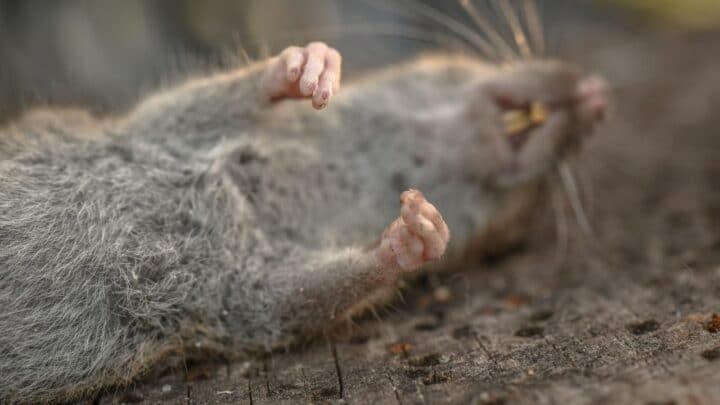When I first began keeping rats as pets, I learned a huge amount about these rodents and how to keep them as pets. One of the first areas of knowledge I crashed into was how to tell if my rat was sick or dying.
Rats are really amazing creatures, but they can’t tell you they don’t feel well, and knowing your rat is dying is essential to help you know what to do.
How to Tell If My Rat Is Dying?
By looking for redness of the rats’ eyes (which can be difficult as some rats are naturally red-eyed), constant sneezing and a nasal discharge, irregular breathing, loss of appetite, sudden lumpy masses on their body, and scratching and hair loss, I could tell whether my rat was healthy or dying.
Signs of Whether My Rat Is Dying
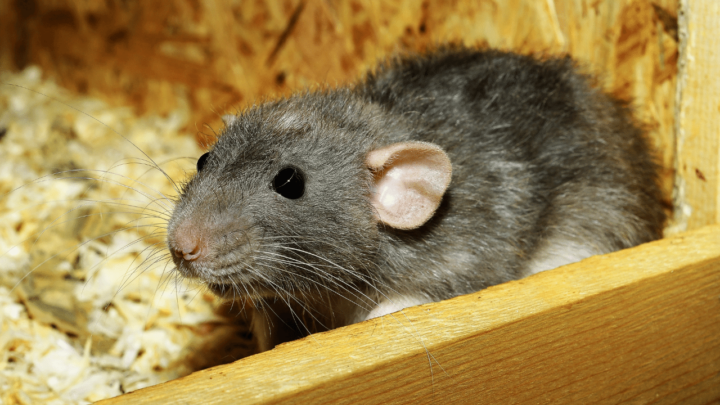
Red eyes in rats could be a sign that your rat is dying
One of the best things you can do for your pet rat is to learn what is normal for them. Where one rat may have reddish eyes, your rat may not.
If your rat’s eyes suddenly become red, it could mean they are ill and could be dying.
I make sure to check on my rat daily. This allows me to develop a feel for what is normal for my rat.
My rat has edema under the skin from an old fight, and this lump is normal, but I recently discovered a new swelling, which prompted a vet visit. By acting swiftly, I saved my rat’s life.
Pay attention to changes in your rat’s appearance, and you will possibly be able to stop your rat from dying. Look for:
More Porphyrin Staining
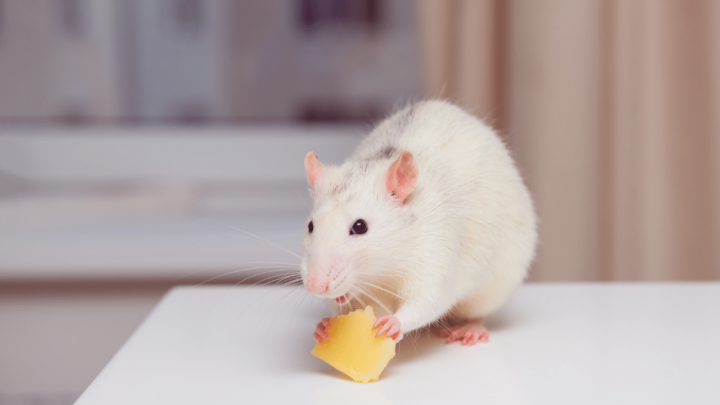
More Porphyrin Staining
Rats and other rodents have a naturally ruddy appearance to their noses and the lining around their eyes.
This is especially visible in my white rats, but if they start to look almost vampirical, it usually means they aren’t well.
Too much porphyrin can be secreted by their tear glands, which can mean the rat has sensitive eyes, a chemical imbalance, or they are generally sick.
Nasal Discharge and Sneezing
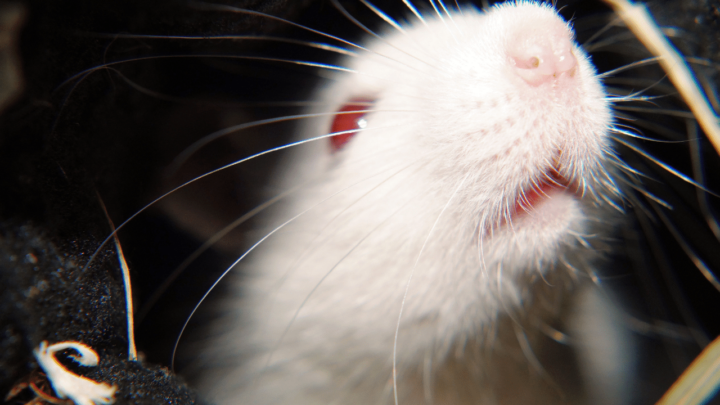
Yellow discharge from her nose
While sneezing is normal for a rat, when my rat began to show a yellow discharge from her nose, I knew professional help was needed. Rats, like all mammals, have sinuses and these can become blocked.
Infection can result, and because rats are so small, they can quickly sicken and die.
Changes in Breathing
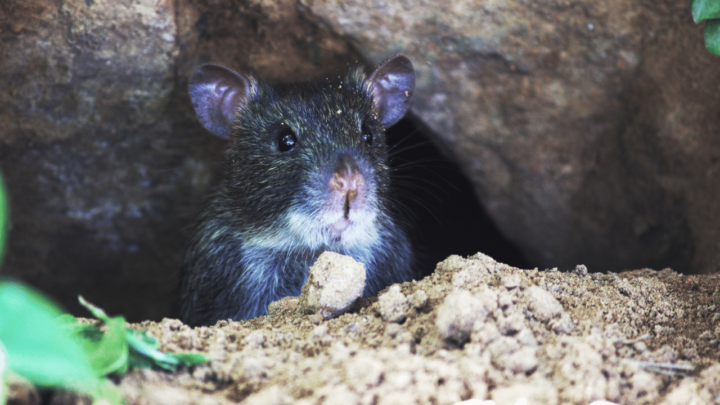
Changes in Breathing
Knowing my rat, I could quickly tell something was wrong when I noticed a change in her breathing rate.
Suddenly wheezing and breathing faster was an indication of pain, and we could act quickly at the vets to help alleviate her pain.
She had a bladder infection, and the faster breathing was the only warning I got to a potentially fatal situation.
Changes in Eating Habits
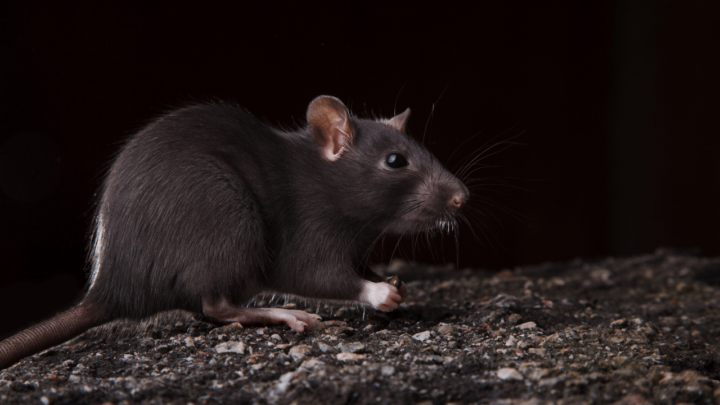
A rat gaining weight might be a negative sign
When rats start to eat less or suddenly eat way more and gain excessive weight, it can also be a sign of a potentially fatal condition.
Hormone imbalances, stress, and many other health conditions can trigger some changes to their feeding habits.
I encourage all new rat owners to learn what is normal for their rat, weigh the amount of food their rat eats daily, and weigh their rat weekly.
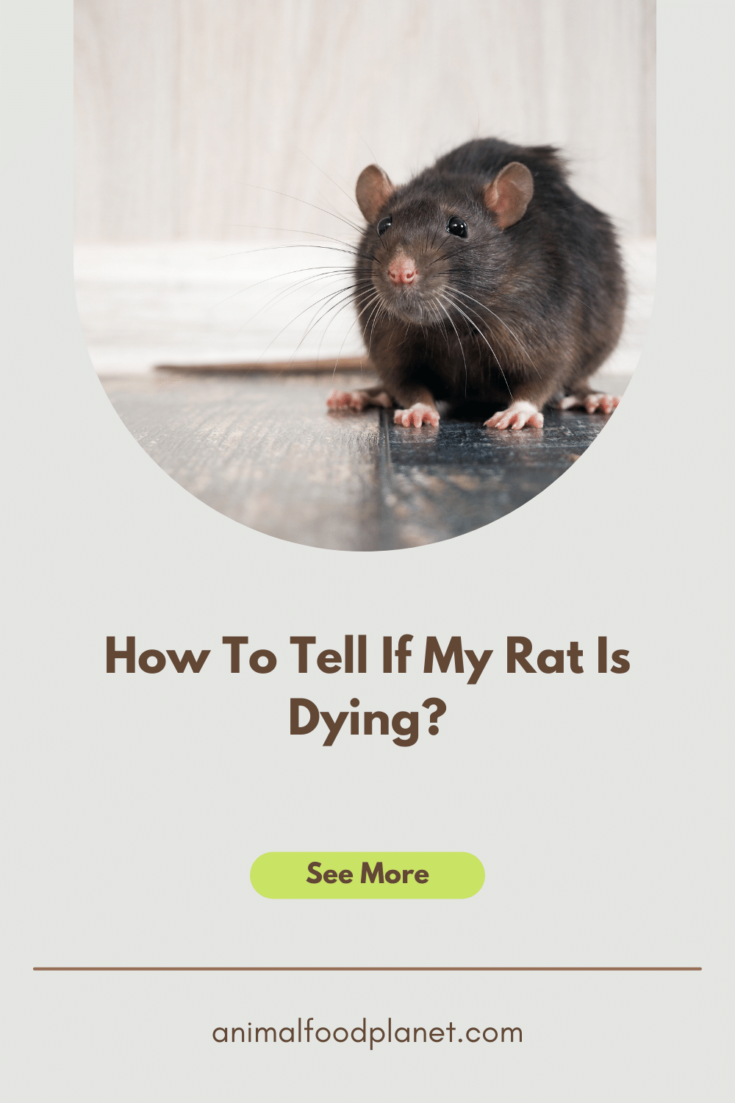
How To Tell If My Rat Is Dying
The appearance of Body Lumps
Pet owners know that lumps are often a sign of cancerous growths or melanoma.
By keeping an eye out for the appearance of these, it is possible to take appropriate steps like changing your rat’s diet, getting them the medical care they need, and if the time comes, having them humanely euthanized instead of letting them suffer.
I run my hands over my rat while I play with her, which is a good way to pick up any signs of lumps or hard spots in her skin and in her muscles.
This also helps me spot abscesses that may form from ingrown hair or bites she gets from the other rats in our little rodent family. An abscess, if left untreated, can lead to septicemia and cause your rat to die.
Lethargy and Lack of Grooming
Rats are supposed to groom themselves. They do this almost obsessively, so if you notice your rat doesn’t self-groom and lays about, looking tired all day, something is wrong.
I know how much playtime my rats want daily, and I also know for how long they sleep.
In winter they sleep a little longer and like to burrow into their nesting box more often. But if my rat does this in summer, I know I need to check what’s going on.
Usually, this will be accompanied by any of the above signs, which may point to a disease or illness that is sapping my rat’s strength. I need to act quickly when I notice this as my rat could be dying.
Frequently Asked Questions about How to Tell If My Rat Is Dying
How do pet rats usually die?
Pet rats often suffer pulmonary and respiratory diseases and complications. The first sign of this is rapid breathing and trembling in the body. A nasal discharge can also indicate pneumonia, which can be fatal if not swiftly treated. It can be really difficult to fully eradicate respiratory disease in rats, and while you may see your rat recover today, tomorrow they may be even sicker with lung disease.
Why is my rat barely moving?
Rats are busy creatures, and a rat that simply sits in a corner all day is likely sick or stressed (and will soon be sick). A rat that doesn’t move will suffer all manner of illness such as digestive complications, and they will begin to sicken and die.
Do pet rats die easily?
There are many reasons your pet rat could sicken and die. Often, your rat will hide their illness, and if you don’t keep an eye on them, you may simply and unexpectedly find them dying in a corner of their cage or nest.
The Final Word
All pets, whether puppies, rats, or lizards, require your full attention and care. Animals can’t speak, at least not in human words, and it’s up to us as responsible pet owners to keep an eye for signs that our pets are unhealthy, sick, or dying.
By keeping an eye on your rat, you will be able to tell when they are sick if they are possibly dying, and help ease their pain.

